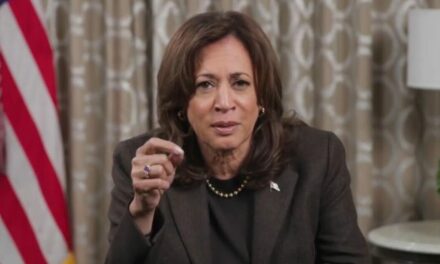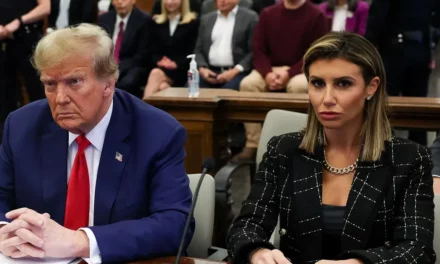We support our Publishers and Content Creators. You can view this story on their website by CLICKING HERE.
UnitedHealthcare CEO Brian Thompson was brutally murdered in a targeted attack outside a Manhattan hotel on Wednesday.
Thompson, a high-profile executive in the health insurance industry, was reportedly under investigation by the Department of Justice (DOJ) for allegations of insider trading and attempting to thwart monopolistic practices within the healthcare sector.
Thompson, 50, was gunned down around 6:45 a.m. outside the Hilton hotel on Sixth Avenue, where he was scheduled to attend UnitedHealth Group’s annual investor conference.
Surveillance footage reveals a masked assailant approaching Thompson from behind and firing multiple shots before fleeing on an electric bike toward Central Park.
“It does seem that he’s proficient in the use of firearms as he was able to clear the malfunctions pretty quickly,” NYPD Chief of Detectives Joe Kenny said at the news conference.
WATCH: (Viewer discretion is advised.)
The New York Police Department reported that the attack appears to have been targeted, although the motives remain unclear. Thompson was pronounced dead at the scene after sustaining multiple gunshot wounds.
Law enforcement officials are offering a $10,000 reward for information leading to the suspect’s arrest.
The NYPD is investigating the incident as a possible assassination, given Thompson’s high-profile status and the ongoing DOJ investigation.
Thompson, who became CEO of UnitedHealthcare in 2021, and other top executives had reportedly come under DOJ scrutiny in recent months.
In February, Thompson exercised stock options and sold shares worth $15.1 million, less than two weeks before news of a federal antitrust probe into UnitedHealth became public—a revelation that led to a sharp decline in the company’s stock price.
UnitedHealth Group’s chairman, Stephen Helmsley, Chief People Officer Erin McSweeney, and Chief Accounting Officer Tom Roos collectively also sold over $101.5 million in shares.
Helmsley alone reportedly netted nearly $85 million. These transactions, revealed in a Crain’s New York Business exposé, are now the subject of an intense DOJ probe into potential violations of insider trading laws.
In addition to the insider trading allegations, Thompson was also accused of attempting to halt UnitedHealthcare’s expansion into monopolistic dominance within the healthcare industry, according to Fox News.
The news outlet reported:
There were reports that the executives were accused of insider trading and fraud, and last year the DOJ launched a probe into whether the nation’s largest insurer was unfairly restricting competitors and running a monopoly.
Last month, the DOJ along with attorneys generals from Maryland, Illinois, New Jersey and New York filed a lawsuit to block UnitedHealth Group Incorporated’s proposed $3.3 billion acquisition of rival home health and hospice provider Amedisys Inc.
The transaction, according to the complaint, would eliminate competition between UnitedHealth and Amedisys.
By eliminating the competition, patients who receive home health and hospice services would be harmed, as would insurers who contract for home health services and nurses who provide those services, according to the DOJ.
“We are challenging this merger because home health and hospice patients and their families experiencing some of the most difficult moments of their lives deserve affordable, high quality care options,” Attorney General Merrick B. Garland said last month. “The Justice Department will not hesitate to check unlawful consolidation and monopolization in the healthcare market that threatens to harm vulnerable patients, their families, and health care workers.”
Both companies view each other as close competitors for home health and hospice services, and UnitedHealth’s proposal would eliminate that competition.
Adding to the company’s woes, UnitedHealth suffered one of the largest healthcare data breaches in U.S. history earlier this year, compromising the private data of potentially one-third of Americans. The company paid a $22 million ransom to the hackers and estimated the financial impact of the breach at around $705 million, according to the New York Post.

 Conservative
Conservative  Search
Search Trending
Trending Current News
Current News 





